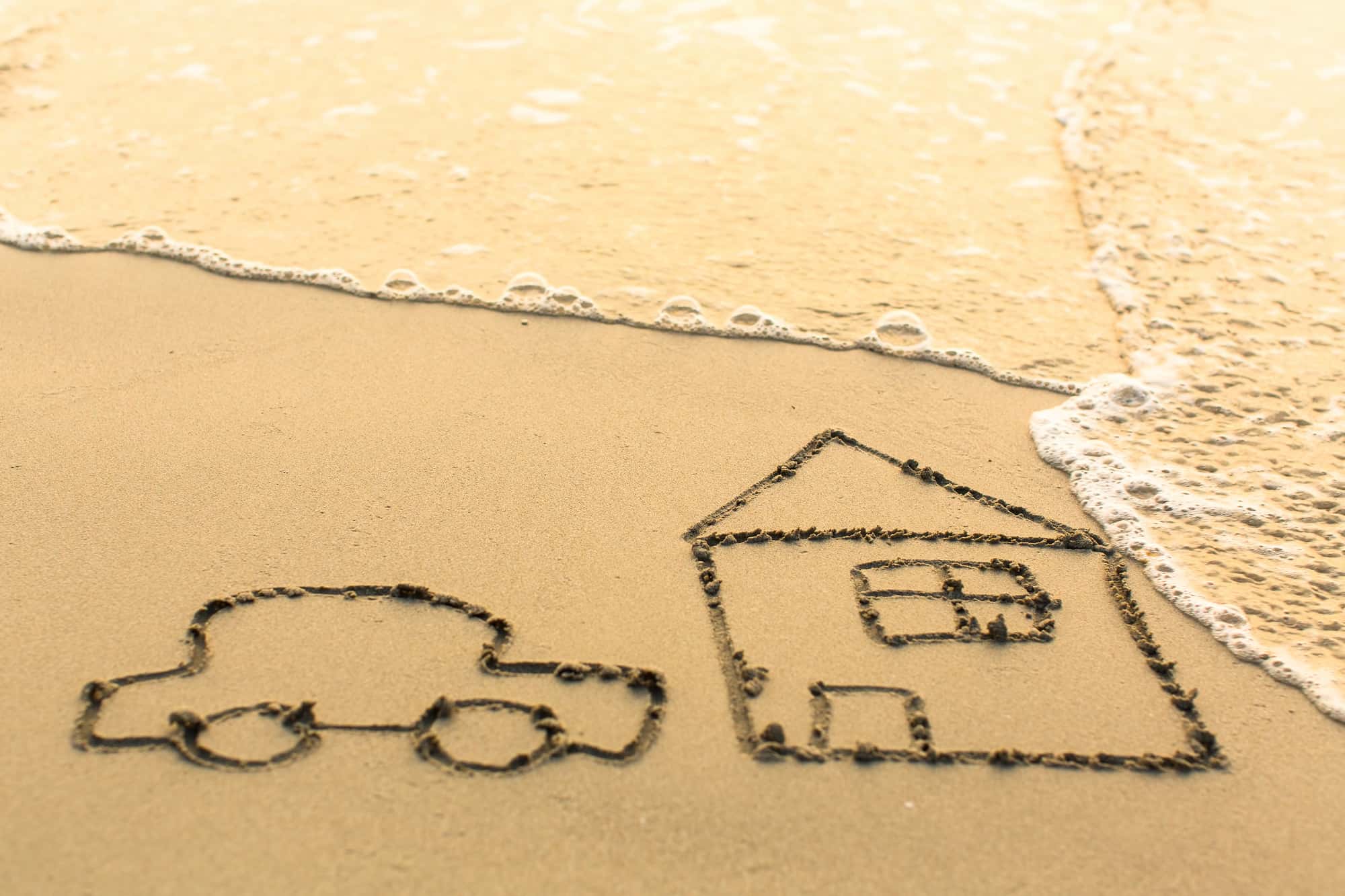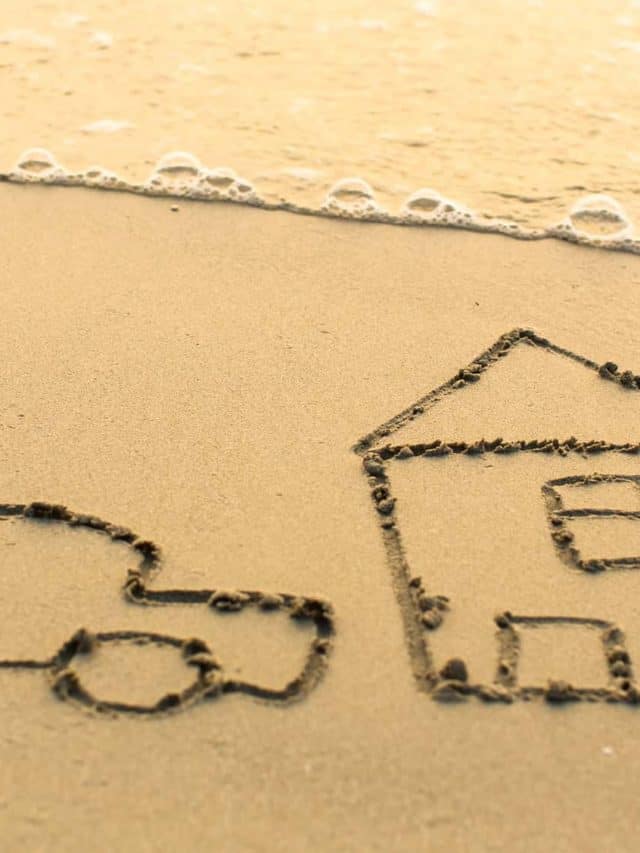To make Wealthtender free for readers, we earn money from advertisers, including financial professionals and firms that pay to be featured. This creates a conflict of interest when we favor their promotion over others. Read our editorial policy and terms of service to learn more. Wealthtender is not a client of these financial services providers.
➡️ Find a Local Advisor | 🎯 Find a Specialist Advisor

Here are My Definitions Contrasted with Others – You be the Judge…
First, a disclosure – I’m not an investment or real estate professional.
I’ve just been investing for several decades, with my portfolio outperforming the S&P 500 for much of that time.
Oh yes, I’ve also owned 3 homes and an office condo (most of which I still own, and most of which I lease out to others).
How I Define Assets and Liabilities
Based on what I read and my investing experience, my definitions of assets and liabilities are pretty straightforward and (I thought) not very controversial. Simply, an asset is something you own, while a liability is something you owe.
Here are some examples of assets:
- Primary residence
- Rental real estate
- Business
- Stocks
- Bonds
- Cars
- Mutual funds
- ETFs
- Checking and savings accounts
- Money market accounts
- Certificates of Deposit (CDs)
- Cash
- Collectibles
- Books
- Furniture
- Etc.
You get the idea, right?
Here are some examples of liabilities:
- Mortgages
- Credit card balances
- Auto loans
- Student loans
- Library books
- Etc.
Simple, right?
Then, I Read This…
Ms. J.M. Riordan (@birdsongwakeup) published an article claiming “Your House Is Not an Asset” with the subheading “Debunking a financial misconception so many people hold.”
In this piece, Ms. Riordan makes the following statement about a primary residence being an asset:
“Your home? Nope. Rarely is this an asset. Assets make you money; liabilities cost you. In fact, you will never know if your house is/was an asset until you sell it.”
The gist of her argument is that you can only tell if your house was an asset after you sell it, and that depends on whether the total you spent on it is less than the proceeds you get from selling it.
In the total costs she includes:
- Purchase price
- Real estate agent commissions (when buying, if any, and when selling)
- Total mortgage interest paid while owning the house (less any tax benefit accrued as a result)
- Total property taxes, home insurance, and maintenance work paid while owning the house
- Total cost of all upgrades/renovations made on the house while you owned it
If the total of all these exceeds the proceeds from selling the house years later (plus any rental income you made from renting out the house or any portion of it), then, according to Ms. Riordan, your house wasn’t an asset.
In short, Ms. Riordan claims that something can only be an asset if it makes you money. She even says: “The wealthy, however, operate from the central understanding I mentioned above: assets make you money, and liabilities cost you.”
Deconstructing the Argument
If my house was an asset only if it ended up making me money, then the same logic means that the following are not assets if you happen to sell them at a lower price than what you paid for them:
- Stocks: these go down in price almost as often as they go up, and the market as a whole goes down about one year in 4
- Bonds: these go down when interest rates go up
- Crypto currencies: these frequently go down in price
- Businesses: same as with stocks, the value of a business can go up or down
- Cars: Ms. Riordan says about this: “Cars? (This one to me is absurd because it depreciates in value for the entirety of its life.)”
I’m certain anyone with the most minute amount of financial understanding would reject any definition of asset that excludes stocks, bonds, and/or businesses.
So, nope, whether your house is an asset cannot, by definition, depend on what you paid for it or what someone else later paid you for it.
Is Your Car or House an Asset?
If you own a car, it’s an asset. It’s almost guaranteed to be a depreciating one, and thus not a good financial investment (excluding certain cars that become collector items), but an asset it is.
You could make an argument for your car being indirectly a good financial investment if it allows you to bring in income (think Uber, pizza delivery, etc.), but I’d call that a stretch. In my opinion that would make it an essential business tool, not a good financial investment.
Your home too, is an asset, even if there’s a mortgage on it.
As long as you keep making your mortgage payments, the bank can’t decide to sell it, can’t force you to give it away, and can’t make you take in renters. You’re the only one (along with any co-owners such as your spouse) who can make such decisions.
This means you own the house, and the bank does not.
So, Your House IS an Asset, but Is It a Good Financial Investment?
First, let’s assume you have $255,000 burning a hole in your pocket, and you decide to buy a house in an all-cash transaction.
Not saying this would be a good idea, but bear with me.
Let’s make the following assumptions:
- The home’s purchase price is $250,000 (because you have to pay closing costs such as real estate taxes, title searches, etc., which we’ll assume run you 2% of the purchase price)
- You pay 1% of the house’s value per year in property taxes
- You pay another 0.5% of its value per year for homeowners insurance
- You pay another 0.5% of its value per year for maintenance and repairs
- The house appreciates at 4% each year
- Inflation runs 3% each year
- When you sell, after the typical 10-year ownership period in the US, you pay 6% in closing costs, including realtor commission
If we ignore inflation, you will have paid $250k for the house, $5k for the purchase closing costs, $30k in 10 years’ worth of taxes, $15k over 10 years for insurance, another $15k for maintenance and repairs, and about $21.4k in closing costs for selling the house.
All these come to $336.4k.
When you sell (assuming it’s at market value), you get $355.8k, or $19.4k more than your total costs. That’s a return of 5.8%.
Clearly this isn’t a great investment return over a decade, but let’s not forget that you got to live in the house for a decade, saving you a mountain of rent costs.
How about if we count inflation? Given the above assumptions, you end up losing about 18.7% on the deal.
That works out to about $424 per month. Pretty reasonable compared to the rent you didn’t have to pay, and the fact that you didn’t have to worry about a landlord harassing you and/or raising your rent each year.
Wait a Minute! Who Can Afford to Buy a House All-Cash?! How About the Mortgage Interest Almost All of Us Have to Pay?
This is a very fair objection. However, since this is a much more complicated analysis, and one I already presented elsewhere, I’ll just reprise the bottom line for you here…
With a set of assumptions stated there, your average cost of home ownership over 40 years, for a $500k home, adjusted for inflation and appreciation, would be over $8000 a year.
However, unless you’re willing and able to find a housing solution that avoids having to pay rent (couch surfing for 40 years, anyone?), you must compare that to the rent that owning the house lets you avoid. That, for the hypothetical case in that other article, ends up being over $38,600 after accounting for investing any savings (positive or negative), over 360% higher than buying and selling the home!
Interestingly, in some situations you do actually end up making money from owning your home. First, it might appreciate a lot faster than 4%/year – one of my houses doubled in value over 5 years! Second, you might be paying 3% interest on your mortgage, and then inflation spikes to over 5% and you effectively make money off that mortgage!
The Bottom Line
My argument is:
- If I own it, whether it makes or loses money, it’s an asset
- If I owe it, it’s a liability
- An asset isn’t necessarily always a great investment, but even if it loses money that doesn’t make it a liability
- Owning a home is in most cases (assuming you can afford it) a far better financial deal than renting a similar property – note that buying a far more expensive home than one you’d be willing to rent and live in for several decades will likely not end well, financially speaking
- The fact that I finance a home with a mortgage doesn’t mean the bank owns it (until and unless I stop making payments and they foreclose)
- Inflation must be taken into account if you’re calculating long-term results, which may turn what seems to be a good investment into a poor one, but doesn’t change it into a liability
I’ll let you be the judge as to whether my (standard) definitions of asset and liability make more or less sense than Ms. Riordan’s (that seem to echo those of that so-called financial guru – Robert Kiyosaki). I will just note that Ms. Riordan herself says she owns a home.
Just sayin’… :).
Are you ready to enjoy life more with less money stress?
Sign up to receive weekly insights from Wealthtender with useful money tips and fresh ideas to help you achieve your financial goals.

About the Author
Opher Ganel
My career has had many unpredictable twists and turns. A MSc in theoretical physics, PhD in experimental high-energy physics, postdoc in particle detector R&D, research position in experimental cosmic-ray physics (including a couple of visits to Antarctica), a brief stint at a small engineering services company supporting NASA, followed by starting my own small consulting practice supporting NASA projects and programs. Along the way, I started other micro businesses and helped my wife start and grow her own Marriage and Family Therapy practice. Now, I use all these experiences to also offer financial strategy services to help independent professionals achieve their personal and business finance goals.
Connect with me on my own site: OpherGanel.com and/or follow my Medium publication: medium.com/financial-strategy/.
To make Wealthtender free for readers, we earn money from advertisers, including financial professionals and firms that pay to be featured. This creates a conflict of interest when we favor their promotion over others. Read our editorial policy and terms of service to learn more. Wealthtender is not a client of these financial services providers.
➡️ Find a Local Advisor | 🎯 Find a Specialist Advisor








